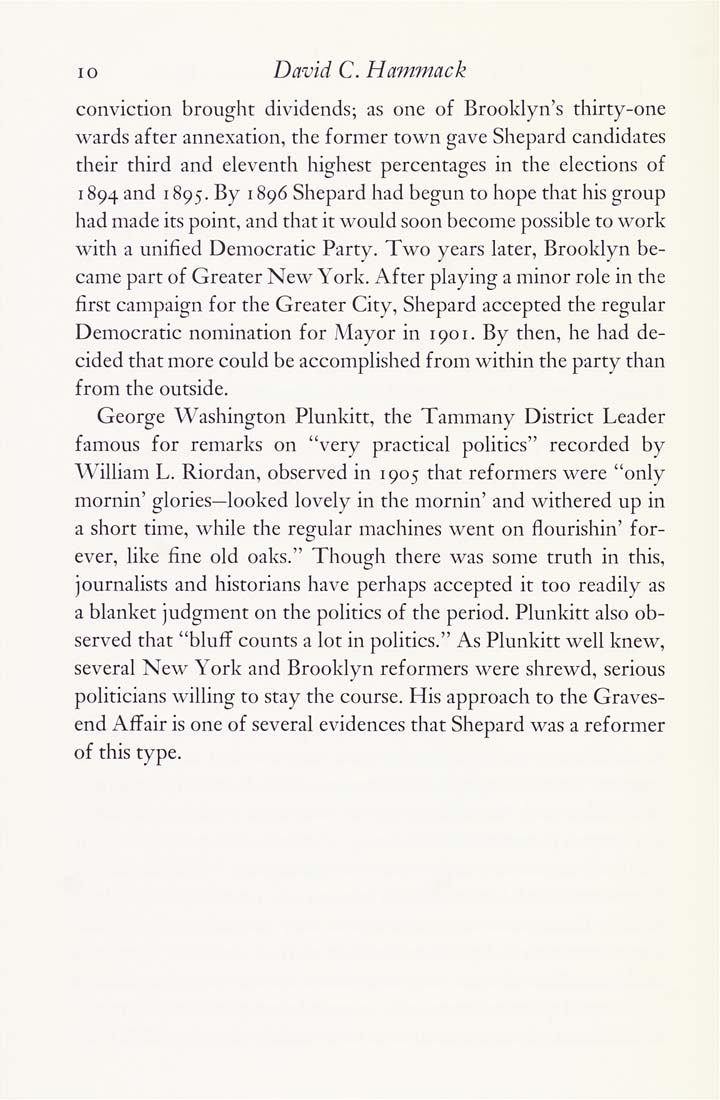Columbia Library columns (v.23(1973Nov-1974May))
(New York : Friends of the Columbia Libraries. )
|
||
|
|
|
|
| v.23,no.3(1974:May): Page 10 |

ID David C. Hammack conviction brought dividends; as one of Brooklyn's thirty-one wards after annexation, the former town gave Shepard candidates their third and eleventh highest percentages in the elections of 1894 and 1895. By 1896 Shepard had begun to hope that his group had made its point, and that it would soon become possible to work with a unified Democratic Party. Two years later, Brooklyn be¬ came part of Greater New Y^ork. After playing a minor role in the first campaign for the Greater City, Shepard accepted the regular Democratic nomination for Mayor in 1901. By then, he had de¬ cided that more could be accomplished from within the party than from the outside. George Washington Plunkitt, the Tammany District Leader famous for remarks on "very practical politics" recorded by W'illiam L. Riordan, observed in 1905 that reformers were "only mornin' glories—looked lovely in the mornin' and withered up in a short time, while the regular machines went on flourishin' for¬ ever, like fine old oaks." Though rhere was some truth in this, journalists and historians have perhaps accepted it too readily as a blanket judgment on the politics of the period. Plunkitt also ob¬ served that "bluff counts a lot in politics." As Plunkitt well knew, several New York and Brooklyn reformers were shrewd, serious politicians willing to stay the course. His approach to the Graves¬ end Affair is one of several evidences that Shepard was a reformer of this type. |
| v.23,no.3(1974:May): Page 10 |







